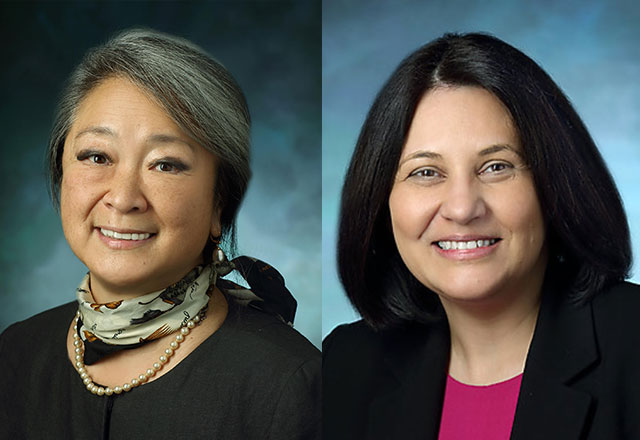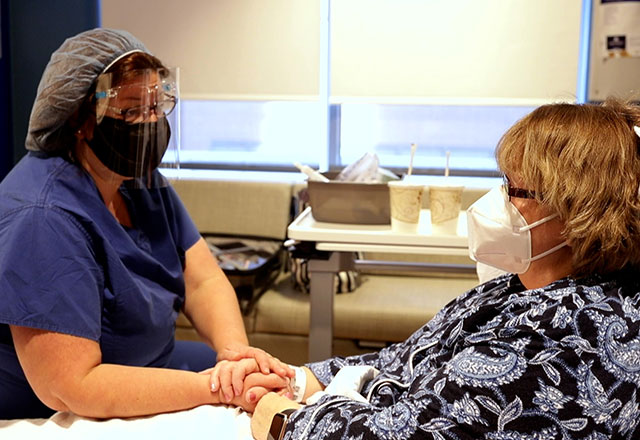Supporting Your Health Before, During and Beyond Menopause
The Women’s Wellness Program prioritizes women’s health and wellness through menopause and into her post-reproductive years. The program delivers:
- Efficient and effective patient-centered care
- Educated trainees and health care providers
- Interdisciplinary research opportunities
Request More Information
Call
-
Meet Our Team
Meet the people behind the program
-
Strategies for Healthy Aging
Learn about recommended lifestyle modifications to promote healthy aging
-
Resources for Patients and Caregivers
Find articles, videos, and more
-
Podcasts and Webinars
Hear from our women's health experts
PATIENT RESOURCES Patient Support & Services
Recognizing the pervasive impact of decreased ovarian hormones on a woman’s body over time, our dedicated specialists from departments across Johns Hopkins Medicine work to treat and advocate for women’s post reproductive health.
The Program’s patient navigator works with providers to evaluate the needs of each patient and facilitate consultations with the appropriate specialists in a timely, coordinated fashion.
For more information, please email [email protected].
Information from Our Experts
Living a Healthy Lifestyle
Smart lifestyle decisions, like exercising more and drinking less alcohol, can help you stay healthy well into old age. The Johns Hopkins Women’s Wellness and Healthy Aging Program can help you make the decisions that are right for you.
Go Red for Women l Red Chair Series with Dr. Erin Michos
Dr. Erin Michos, Associate Director of Preventive Cardiology and Director of Women’s Cardiovascular Health Research at The Johns Hopkins Ciccarone Center, shares her expertise with host Jennifer Nickoles. In her clinical practice, alongside prevention, Dr. Michos is also passionate about cardio-obstetrics: the intersection between cardiovascular disease and pregnancy. She gives insight on this important collaboration and explains how pregnancy can sometimes unmask or exacerbate existing heart conditions. Dr. Michos' research largely focuses on risk factors that specifically affect women, and notes the fastest growing rate of heart disease currently is in middle-age women.

















